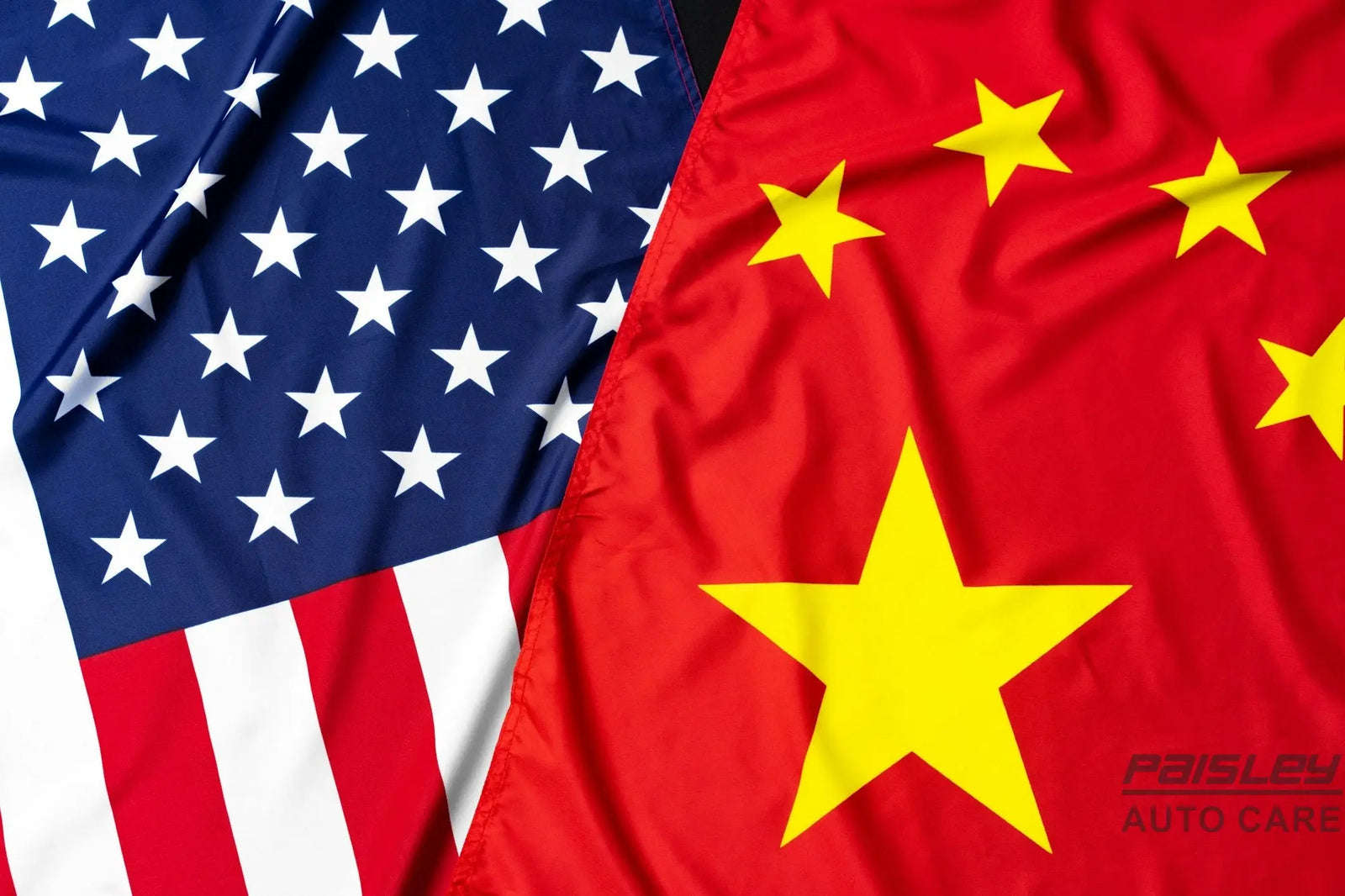Understanding the US Government’s Ban on Chinese Technology
In a world where your coffee machine has a Twitter account, your refrigerator might just text you, and your car is smarter than your dog, there’s an ongoing debate about the security risks posed by advanced technology in our everyday lives. The latest episode in this soap opera of tech paranoia? The US government’s bold and heroic attempt to save us all from the terrifying menace of… Chinese technology in connected cars.
Yes, you heard it right. While we’ve grown accustomed to warnings about spyware apps, compromised network devices, and, of course, TikTok (because why not blame social media dance trends for global security issues), the latest villain to emerge from the shadows is the humble car. Not just any car, but the sophisticated, shiny, and ever-so-helpful connected car – one that could, if we're not careful, be a portal to foreign espionage, cyber-attacks, or worse... maybe someone in Beijing knowing you took a wrong turn on your way to Starbucks.
Why Are Connected Cars the New Battleground?
Let’s begin by acknowledging what a connected car is. It's not just a machine that drives you from point A to point B anymore. Today’s vehicles are essentially supercomputers on wheels, complete with Wi-Fi, GPS tracking, infotainment systems, voice assistants, and sometimes, even the ability to drive themselves. They can link up with other smart devices, receive software updates remotely, and collect enormous amounts of data – about everything from your driving habits to your favorite radio stations. You know, the truly critical stuff foreign governments are dying to know.
Connected cars rely heavily on advanced technology that includes components like semiconductors, chips, and software. Enter China, a nation that is not only a manufacturing powerhouse but also a significant player in tech. Naturally, the idea of Chinese companies having any involvement in these systems has given rise to concerns in Washington, where leaders are now scrambling to “protect national security” by banning the use of Chinese technology in connected vehicles. Because clearly, the most urgent threat facing the American public today is the terrifying possibility that someone, somewhere in China, might be able to hack into your car’s Bluetooth connection and change your playlist from Taylor Swift to C-Pop.
The Ban: What’s Really at Stake?
Let’s break down what this ban entails. According to reports, the US government is considering restrictions on Chinese-made technology in connected vehicles, which could affect everything from chips and hardware to software and cloud-based services. The reasoning behind this, as always, is the ever-present specter of "national security threats." Apparently, the fear is that China might use its technological involvement in cars to collect data or potentially even launch cyber-attacks on the US.
Now, while the thought of a cyber-attack launched via your car’s navigation system is no doubt the plot of a future Netflix thriller, the real-world risks are, well, slightly more complicated. It's true that modern vehicles gather an enormous amount of data. Everything from your GPS location to your speed and braking patterns can be stored and analyzed. But let’s be real for a second – if someone wanted to spy on you, they wouldn’t need to hack into your car. They could just, you know, check your Facebook or scroll through your Twitter feed, where many people generously share their location, thoughts, and even food preferences for free.
But, of course, this ban isn’t just about connected cars. It’s part of a broader campaign by the US government to curb China’s growing influence in the tech sector. We’ve already seen the bans on Huawei and ZTE, the relentless scrutiny of TikTok, and the tariffs on Chinese-made tech products. The connected car ban is simply the latest in a long line of moves aimed at limiting Chinese tech firms' foothold in the American market.
What Could Go Wrong? (Spoiler: A Lot)
While it might sound noble to cut off Chinese tech, the reality is that this move could have significant ramifications for the auto industry and consumers alike. For starters, China is one of the largest producers of semiconductors, a critical component in modern cars. Semiconductor shortages have already wreaked havoc on car production in recent years, leading to delays, price increases, and a shortage of new vehicles on the market. Cutting off access to Chinese-made components could further strain an already fragile supply chain, driving up costs for automakers and consumers alike.
And then there’s the matter of innovation. Like it or not, Chinese tech firms are at the forefront of innovation in many fields, including AI and 5G. Banning their technology could limit the potential of connected cars and slow the development of exciting new features. After all, it’s hard to create the next generation of self-driving cars or AI-powered assistants when you’re deliberately cutting yourself off from some of the best technology available.
But don’t worry, America. We’ll just stick with our tried-and-true technologies. Who needs Chinese-made chips when we can go back to AM/FM radio and manual steering wheels? Sure, your car might not be able to self-park anymore, but at least you’ll be safe from the imaginary threat of Chinese hackers taking over your road trip playlist.
The Bigger Picture: A Tech Cold War?
While it’s easy to laugh at the idea of banning Chinese technology in cars, this move is part of a much larger trend that’s shaping the future of global trade and technology. The US-China tech rivalry has been heating up for years, with both countries jockeying for dominance in fields like AI, quantum computing, and telecommunications. The connected car ban is just another battle in this ongoing tech Cold War, where each side is trying to limit the other’s influence while boosting its own capabilities.
For the US, this means pushing for "tech independence" – the idea that we can and should manufacture all our own critical technologies. It’s a noble goal, but one that’s easier said than done. After all, the global tech industry is incredibly interconnected, with parts and expertise coming from all over the world. Cutting off ties with China won’t be easy, and it certainly won’t be cheap.
And let’s not forget that China is no stranger to protectionism either. In response to US sanctions, China has been developing its own domestic tech industry, with companies like Huawei and Xiaomi rapidly expanding their market share both at home and abroad. So while the US might be trying to limit China’s influence, it’s unlikely that this ban will have a significant long-term impact on the global tech landscape.

Final Thoughts: The Car of the Future, But Make It American
In the end, the US government’s move to ban Chinese technology from connected cars is both a reflection of legitimate concerns about national security and a bit of overblown paranoia. Yes, it’s important to ensure that critical systems like cars are safe from cyber-attacks. But is banning all Chinese-made technology really the best way to do that? Probably not.
After all, the car of the future will likely rely on a combination of technologies from around the world. Whether we like it or not, the tech industry is global, and cutting off access to some of the best innovations out there will only hurt consumers in the long run.
But for now, we can all sleep easy knowing that the US government is hard at work saving us from the terrifying prospect of Chinese technology in our cars. Who knows? Maybe they’ll save us from Bluetooth next. Or, heaven forbid, Wi-Fi.




